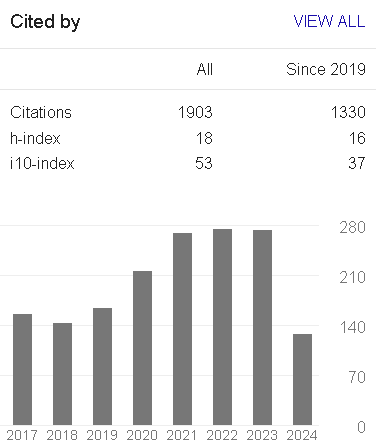OS design challenges and research opportunities in real-time WSNs and approach for real time support in Nano-RK
Keywords:
Wireless Sensor Network (WSN), Real-Time Operating System (RTOS), NanoRK, Wireless Multimedia Sensor Networks (WMSN)Abstract
In recent years, wireless sensor network has become an important research domain. WSNs were initially proposed in domains where ordinary networks (not necessarily wired) are not convenient, either because of the missing infrastructures, or when numerous nodes (in the order of hundreds or thousands) are needed to achieve the assigned task. Nowadays WSNs represent a new generation of distributed embedded systems with a broad range of real-time applications. Some of the applications include process control, fire monitoring, border surveillance, medical care, asset tracking, agriculture, highway traffic coordination etc. Such systems need heavy computations & must meet new kinds of timing constraints under severe resource limitations & limited communication capabilities in highly dynamic environments. Bounded end-to- end delay and guaranteed Quality of Service is also expected. So it is highly necessary to have a common software framework that allows smooth and speedy development of the wide range of proposed sensor applications. An operating system can serve this purpose. Operating systems for WSNs should comprise abstractions that handle digital and analog sensors, provide a communication protocol stack, and make efficient use of the system's limited energy capability. Moreover, OSs should provide an interface and a simple configuration system for application developers [2]. The purpose of this survey is to highlight major concerns pertaining to OS design & research challenges in OS for WSNs in real time applications [1].
References
http://www.ncbi.nlm.nih.gov/pmc/articles/PMC3231431/
http://www.lisha.ufsc.br/Project+CAPES-DFAIT
D. Gay et al., “The nesC language: A Holistic Approach to Networked Embedded Systems,” In Proc. of ACM SIGPLAN Conference on Programming Language Design and Implementation, 2003
Adam Dunkels, Bjorn Gronvall, and Thiemo Voigt, “Contiki - a Lightweight and Flexible Operating System for Tiny Networked Sensors,” In Proc. of First IEEE Workshop on Embedded Networked Sensors, November 2004.
http://www.cs.berkeley.edu/_kwright/nestpapers/ammote.pdf.
S. Bhatti et al., “MANTIS OS: An Embedded Multithreaded Operating System forWireless Micro Sensor Platforms,” ACM/Kluwer Mobile Networks and Applications (MONET), Special Issue on Wireless Sensor Networks, vol. 10, no. 4, August 2005.
http://www.mdpi.com/1424-8220/11/6/5900 [8]http://ieeexplore.ieee.org/xpl/login.jsp?tp=&arnumber=5462978&url=http%3A%2F%2Fieeexplore.ieee.org
http://tif.bakrie.ac.id/pub/proc/icacsis2011/pdf/301.pdf
http://www.rimtengg.com/iscet/proceedings/pdfs/misc/176.pdf
http://paginas.fe.up.pt/~prodei/DSIE08/papers/41.pdf
http://www.nanork.org/projects/nanork/wiki
http://en.wikipedia.org/wiki/Nano-RK
http://moss.csc.ncsu.edu/~mueller/rt/rt11/readings/projects/g4/finalreport.pdf
https://www.msu.edu/~liyang5/docs/nanork_tutorial.pdf
Manjiri Pathak. „Issues in Security & Intrusion Detection in Wireless Sensor Networking‟, International Conference on Advanced Technologies for Research & Product Development (ICATRPD 2012)
Downloads
Published
How to Cite
Issue
Section
License
Copyright (c) 2013 COMPUSOFT: An International Journal of Advanced Computer Technology

This work is licensed under a Creative Commons Attribution 4.0 International License.
©2023. COMPUSOFT: AN INTERNATIONAL OF ADVANCED COMPUTER TECHNOLOGY by COMPUSOFT PUBLICATION is licensed under a Creative Commons Attribution 4.0 International License. Based on a work at COMPUSOFT: AN INTERNATIONAL OF ADVANCED COMPUTER TECHNOLOGY. Permissions beyond the scope of this license may be available at Creative Commons Attribution 4.0 International Public License.


